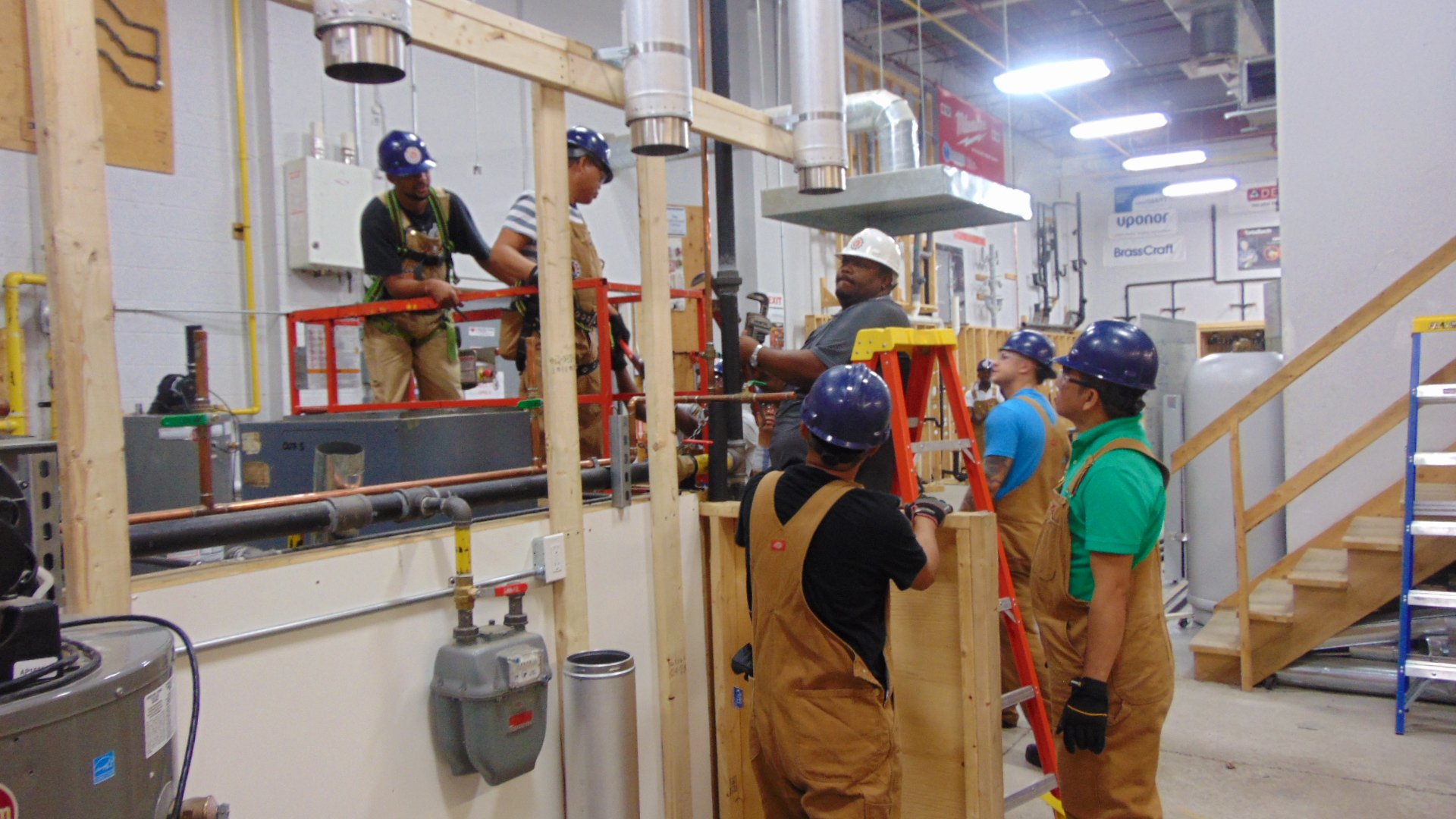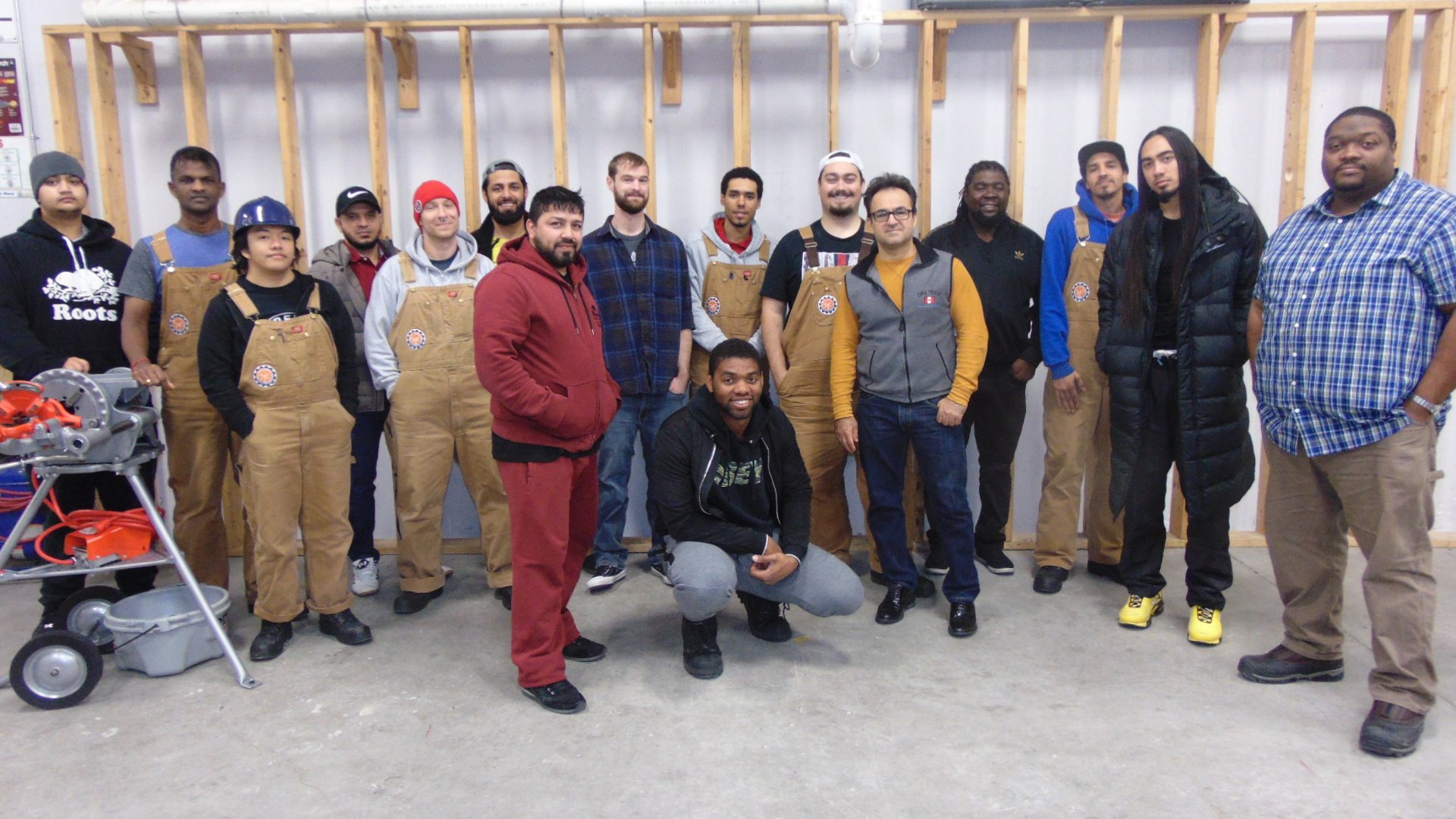Thinking about becoming a gas technician? You've come to the right place. As both an instructor and employer, with over 20 years experience in the field, Winston knows exactly what you need to succeed.
We interviewed Winston this week to get an inside look at gas tech training. We talked about what to expect in class, the toughest parts of training, TSSA exams, and how to get hired.
He also explained gas technician job options, tips for impressing employers, and the biggest advantages to choosing this trade.
This is everything you need to know about starting a career in the gas trade, straight from an expert. Let's get started.
Q: Winston, can you tell us about your background and professional experience?
Winston: I’ve been in the gas trade for more than two decades now. I have my master licence in the gas trade (G1), refrigeration, and 25 other attachment certificates to the gas, including Certified Drafter, CSA Gas Subject Matter Expert (SME), and Residential Heat Loss Heat Gain certificate, just to name a few.
I’ve been teaching gas technician programs for 15 years now, including G3, G2, and G1. I've also owned a heating and air conditioning company for over 18 years, and it's still performing well in the industry.
Q: How long have you been teaching gas technician training at Herzing?
Winston: I’ve been teaching the Gas Technician 3 & 2 programs at Herzing College for the past four years. I got into teaching because I saw the need for skilled technicians in the field.
My goal is to help the next generation by sharing my knowledge, skills, and professional experience.
Q: What are the most valuable skills students learn in your gas technician class?
Winston: Two of the most valuable skills students learn are effective communication and working as a team. We teach all the hands-on skills and knowledge you need to get started as a gas technician:
- Being responsible and reliable
- Time management
- Trade technical terms
- Practical knowledge
- Critical thinking and problem solving
- Professionalism
Q: What are some examples of hands-on work students do in your class to prepare them for gas trade jobs?
Winston: Students do a variety of hands-on projects and exercises. In our gas technician training, they learn how to do:
- Electrical work essential to the gas trade
- Soldering
- Brazing
- Piping
- Equipment troubleshooting
- Proper tool usage
Q: What are the toughest parts of gas tech training? Where do students often struggle?
Winston: Students tend to struggle a little with the new gas language culture along with the act, regulation, and code. The electrical part of the course can be tough for some.
Q: Do you teach students of all ages? Do most students have some experience in the skilled trades?
Winston: I work with people of all ages, from 18 to 65. Most of my students are green. Only a small portion come with experience. You don't need experience in the skilled trades to succeed in the gas technician course.
Q: What about the TSSA exams? Are they harder than students realize?
Winston: I always tell students that the TSSA exam can be very difficult or very easy. It all depends on how well prepared you are going in.
If students participate in class, do homework and assignments, have good attendance, and are good team players, there is no reason to fail. Put in the effort, and you will pass the TSSA exams.
Q: What traits do employers look for when hiring gas technicians?
Winston: You need to show up on time, be ready to work hard, and follow instructions. Employers tell me they're ready to hire any student who has basic foundations in the gas trade and a positive attitude.
The problem is, many students show up with unrealistic expectations. For example, they think work starts at 8 a.m. and finishes at 4 p.m. every day. Employers want to hire gas technicians who come ready to work and get the job done, no matter how long it takes.
Q: What are some common job options for new gas technician graduates?
Winston: Leaving as a Gas Technician 3, you can be hired for the following:
- A helper to a G2 or G1 Technician
- Work doing maintenance on gas appliances (under general supervision)
- Work doing gas piping (under general supervision)
- Working on all other jobs under general supervision
Graduating as a Gas Technician 2, you can be hired for the following:
- Working independently on any gas-fired vapor phase equipment 400,000 BTUH
- Doing all electrical work that is essential to the operation of the equipment, excluding branch lines to the panel or other, unrelated electrical work
- Do all plumbing work that is essential to the operation of the equipment, excluding any other plumbing work that requires a plumbing licence
Q: What are the best reasons to get a gas technician licence?
Winston: The best reason is the field is not saturated. There are good job opportunities out there. Gas technician work is challenging, rewarding, and well-paid.
There's variety in this job. You get to do gas work and parts of other trades too, like plumbing, electrical, and sheet metal work.
Plus, don't forget, we live in a country that starts with winter and ends with winter. Skilled gas technicians will always be in demand!
Thank you, Winston, for walking us through gas technician training, careers, and key skills for this trade. We're very lucky to have you on the faculty at Herzing College.
Still Have Questions About Gas Technician Training?
If you want to learn more about gas technician programs at Herzing College, we suggest talking with an admissions advisor. An advisor will meet with you to discuss your goals and learning needs. It's also a good opportunity to ask about:
- Tuition costs
- Financial aid options
- Government grants for skilled trades training (money you don't have to pay back)
- Admission requirements and how to apply
- The next program start date
- Class schedules
- Setting up a campus tour
Click below to get started. Browse gas technician training for G3 and G2 and plan your next step. Chat online or request information by email. We're here to help!








